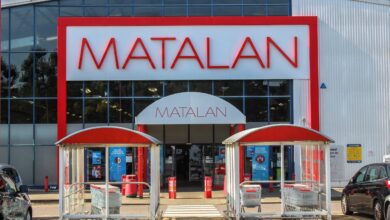What’s required for a business in the retail sector to thrive?

Register to get 1 free article
Reveal the article below by registering for our email newsletter.
Want unlimited access? View Plans
Already have an account? Sign in
Latest figures from the British Retail Consortium (BRC) show that retail sales in the UK fell by 2.7% in May 2019, compared to a year earlier. The total three-month average was also down year-on-year, reflecting the challenging environment for the sector.
And yet, despite the shaky exterior, many retail businesses are continuing to pursue growth strategies. We see this across the BGF portfolio, where we back every different type of retailer, from brands such as Seasalt and Sophia Webster, to subscription-based businesses such as Gousto and Muscle Food, and larger chains such as Furniture Village.
No business is ever guaranteed success, but there are commonalities across those looking to scale their operations – some of which have become more prominent amid the Brexit-fuelled uncertainty.
A laser-focused view of the balance sheet
The adage goes that, in business, uncertain times are opportune times to take calculated risks and move ahead of the competition. For ambitious management teams, that could mean making an acquisition, opening a new site or launching a new range.
When businesses are looking to expand, the key question they need to consider is whether they’re in a financial position to do so. Debt continues to be less readily available than it once was, in particular when it comes to funding capital intensive growth plans.
Conversely, the amount of equity invested in smaller UK businesses rose 5% to £6.7bn in 2018, the highest amount recorded. Having an equity cushion on the balance sheet will usually provide more headroom to invest specifically in higher-risk growth and expansion plans.
A keen eye on overseas expansion
Companies across the UK that want to build significant scale typically understand the importance of cracking the overseas market. A survey by BGF of 250 Midlands-based CEOs carried out last year, for example, showed that 70% were currently exporting and 73% said they were more optimistic about export opportunities than two years ago.
The growth of direct-to-customer channels has made overseas customers more accessible to UK retailers.
Social platforms such as Instagram connect and empower brand advocates all over the world and are relatively inexpensive ways to build loyal, mass customer communities. But while the best brands make this look effortless, behind the scenes execution takes a huge amount of digital marketing prowess, which is often in short supply, and sharp, highly skilled operators.
An interesting example of the demand from retailers for seamless transaction experiences has been the growth of Rebound Returns, a Midlands-based business specialising in returns logistics and management. The company recently opened an office in Asia to help Western retailers retain high-spend Chinese customers who want British products but are often put off by an expensive and inefficient delivery and returns experience.
A strong network
Good entrepreneurs know the power of networks, and the need to surround themselves with the right people. When faced with challenges, founders and CEOs will seek out the opinions of those they trust most – their teams, mentors, investors, former colleagues and even the competition – as sounding boards for ideas.
The best relationships I’ve seen between CEOs and boards are those who haven’t just hired the ‘yes’ people, but instead bring something new to the table.
In today’s environment, good leaders will also make sure they are visible during times of uncertainty, and this opens up opportunities for a new and different type of dialogue with staff. The chances are that if the management team has been prompted to think about the direction of the business, its opportunities and threats in the market, then the broader employee base has too.
Smart management teams will encourage and harness this collective thinking – across their networks – for the good of the business. It is this, rather than reactions to retail sales headlines, that help prove critical in helping UK retailers to thrive.
Ned Dorbin, investor and head of BGF’s Bristol office







